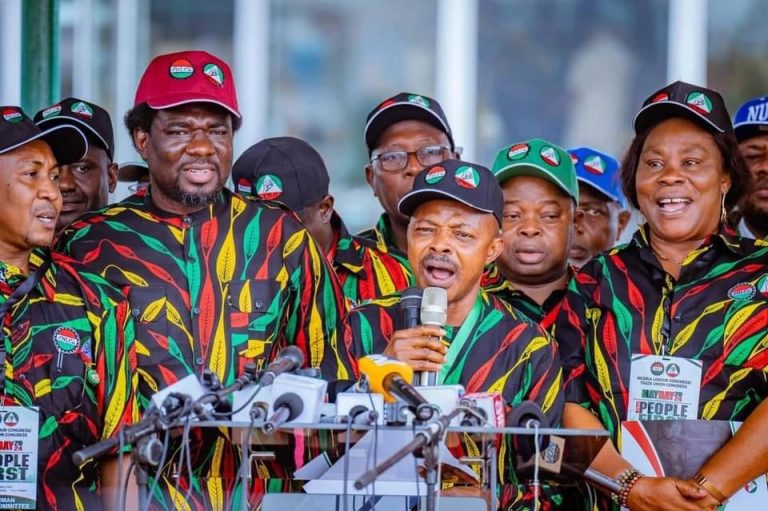The Organized Labour, comprising the Nigeria Labour Congress (NLC) and the Trade Union Congress of Nigeria (TUC), has firmly rejected any notion of a N100,000 minimum wage proposed by the Federal Government. They insist that the government must engage in serious negotiations regarding workers’ wages, maintaining their demand for a new minimum wage of N615,000.
The labor unions walked out of a negotiation meeting last Wednesday when the government offered a new minimum wage of N48,000. The chairman of the Tripartite Committee on the National Minimum Wage, Alhaji Bukar Goni, has since called for another meeting, expressing the government’s willingness to reconsider its position and urging the unions to do the same.
Speaking to *Vanguard* in Abuja, NLC Head of Information and Public Affairs Benson Upah emphasized the need for the government to take the issue of workers’ wages seriously. “Our expectations are that the government should be serious this time around. We expect them to take more seriously the issue of wages of workers,” he stated.
Upah dismissed the notion of accepting N100,000, explaining, “When we demanded N615,000, we broke that down using the barest minimum. For instance, we allocated N40,000 for accommodation and N500 for feeding, which is unrealistic for a family of six. Beyond that, the government increased electricity tariffs by 250% after our demand, adding to costs and expenses.”
A member of the NLC delegation on the Tripartite Committee, Prof. Theophilus Ndubuaku, echoed this sentiment. “Offering N100,000 is not acceptable. It’s far below expectations and doesn’t reflect the cost of living for a worker with a family of six. In the private sector, even artisans earn more than N100,000 a month.”
Ndubuaku outlined the unions’ position, stating, “If the government proposes an amount, they need to justify why they cannot meet our N615,000 demand. We need to see efforts to create wealth, reduce the cost of governance, and ensure that any proposed wage is sustainable.”
The unions are prepared to consider a reasonable offer but stress the need for transparency and a genuine commitment to addressing the economic challenges faced by workers. “We are responsible people. If the government explains why they can’t pay N615,000 and shows plans to improve the economy and governance, we will consider shifting ground,” Ndubuaku added.
The unions also criticized the government’s spending priorities, pointing out that despite claiming financial constraints, the government is allocating funds to projects and imports that do not directly benefit Nigerian workers. “The government is behaving as if they have money but don’t know what to do with it. They should focus on feeding Nigerians, making workers comfortable, and investing in critical sectors like agriculture, power, and transportation,” Upah stated.
The unions remain open to negotiations and are hopeful that the upcoming meeting will result in a fair and realistic minimum wage that reflects the true cost of living in Nigeria.




